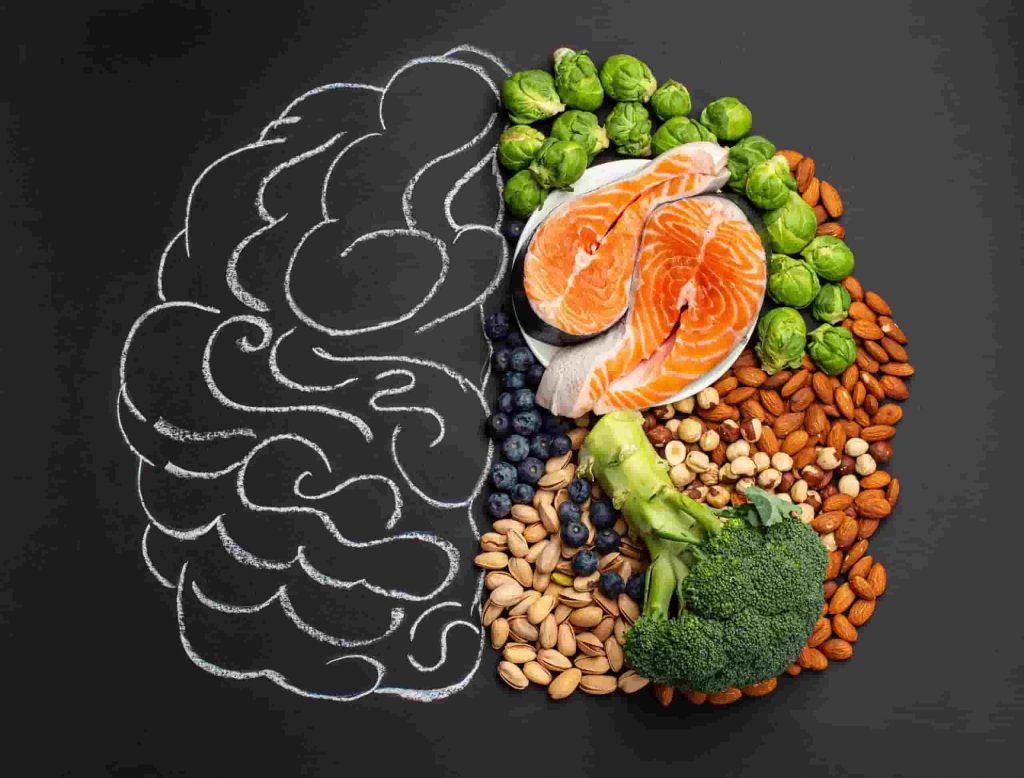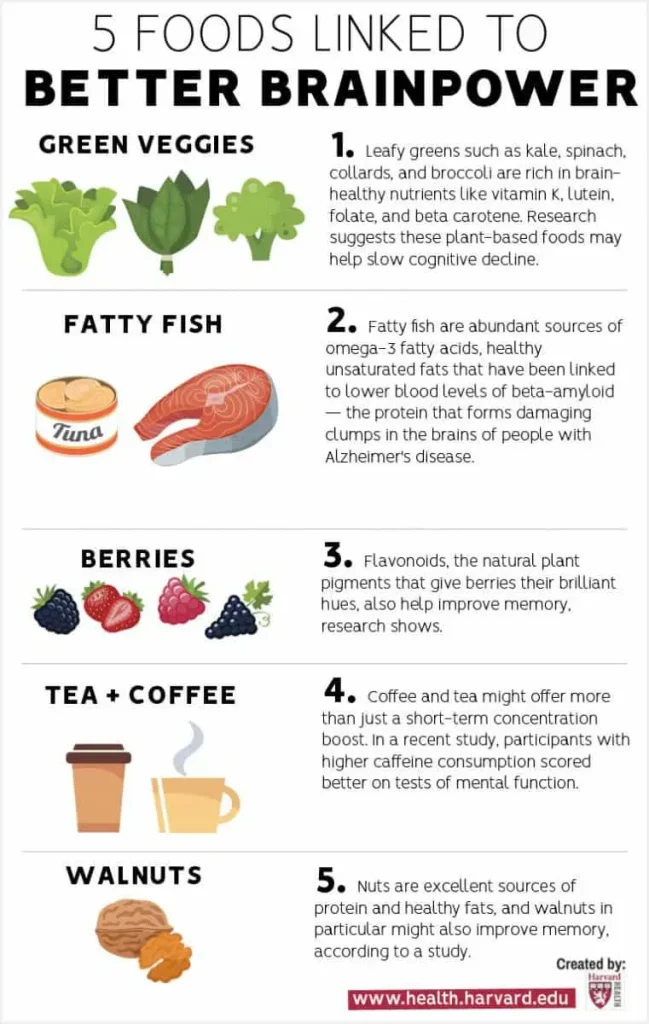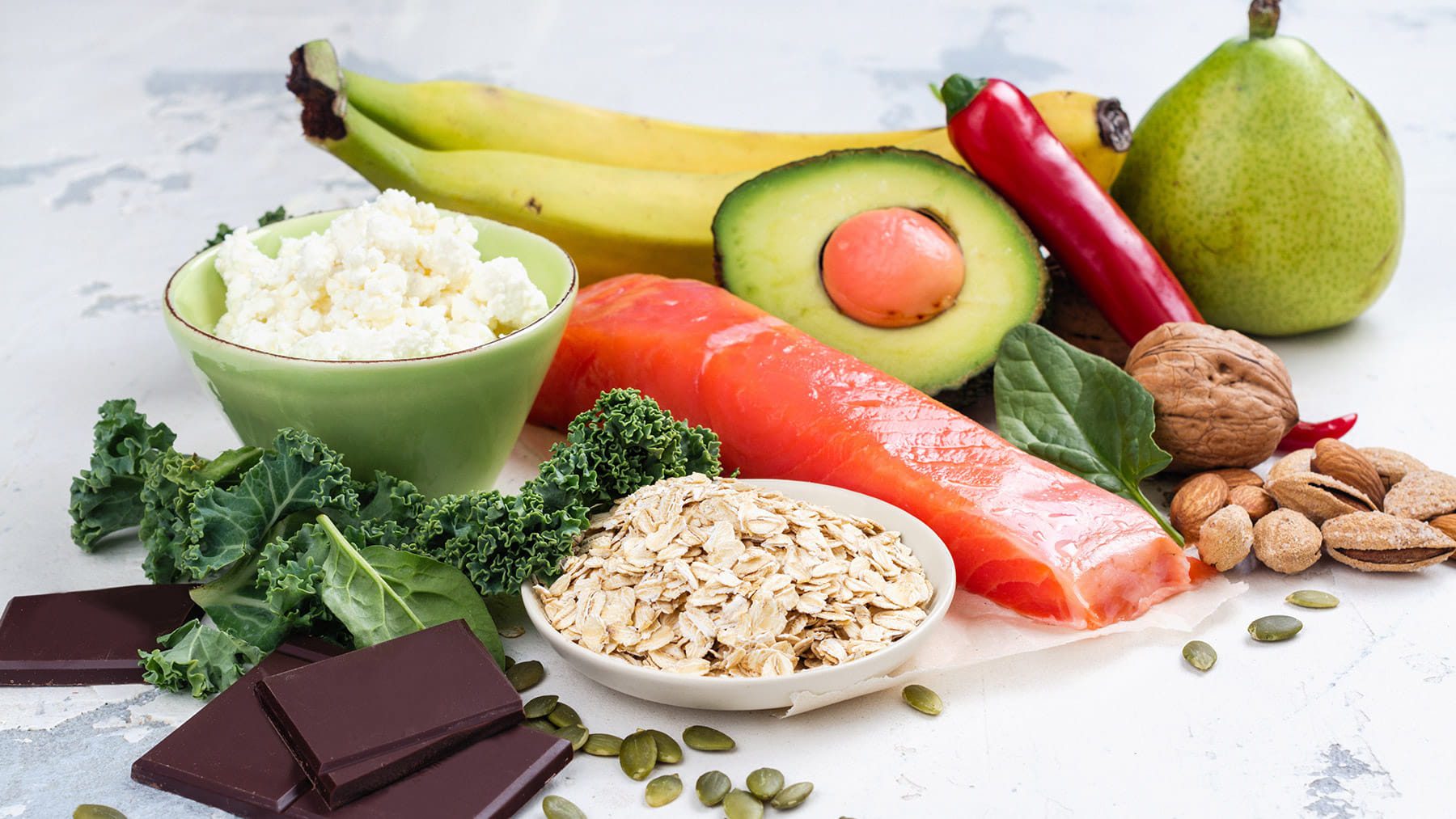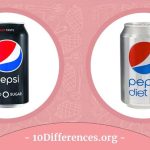Eating fruits vegetables positively affects mental health. These natural foods contribute to better mood and cognitive function.
Rich in essential nutrients, fruits and vegetables play a crucial role in maintaining mental well-being. They are high in vitamins, minerals, and fiber, while also being low in calories, which can help in managing body weight—a factor often linked to mental health.
Antioxidants present in colorful produce like berries, leafy greens, and bell peppers protect the brain from oxidative stress, reducing the risk of mental health disorders. Regular intake of these wholesome foods is associated with lower levels of stress, anxiety, and depressive symptoms. By incorporating a variety of fruits and vegetables into a daily diet, individuals can support brain health and improve overall emotional balance. This makes them a key component in any diet aiming for optimal mental wellness.
Brain Diet: The Vital Link
What we eat shapes not just our bodies, but our brains too. Fruits and vegetables lead the charge in fortifying our mental health. A balanced diet rich in these naturals burst with benefits for our brain.
Nutritional Psychology: A Snapshot
Nutritional psychology studies how foods affect mood and mental well-being. Colorful plates from nature’s palette enhance our mental acuity.
- Leafy greens: packed with vitamins for brainpower
- Berries: small fruits, mighty antioxidants
- Whole grains: steady energy for the mind
Diet’s Role In Cognitive Function
The foods we choose wield a profound impact on brain health.
Think of the brain as an engine; nutrients are its fuel.
| Nutrient | Source | Benefit |
|---|---|---|
| Vitamin C | Citrus fruits | Stress Defense |
| Omega-3 Fatty Acids | Walnuts, Flaxseeds | Boosts brain function |
| Folate | Avocado, Leafy greens | Encourages clarity |

Credit: www.healthline.com
Fruits: Nature’s Sweet Boosters
Imagine a natural sweet treat that also boosts your brain. Fruits are just that! They are packed with flavors and nutrients. They are good for your body and your mind. Let’s dive into how fruits can help you feel happier and smarter.
Antioxidants And Your Brain
Fruits are rich in antioxidants, which protect your brain cells. They fight off damage from harmful molecules called free radicals. A healthy brain means a better mood and sharper memory. Here are the best fruits for your brain:
- Blueberries
- Strawberries
- Oranges
- Cherries
Berries: Small Fruits With Big Impacts
Berries might be small, but they are mighty. They are some of the best fruits for mental health. Let’s see why:
| Berry Type | Benefit |
|---|---|
| Blueberries | Boost brain power |
| Strawberries | Improve attention |
| Raspberries | Reduce stress |
| Blackberries | High in fiber for gut health |
Include berries in your diet for a sweet, wholesome upgrade to your day!
Vegetables: The Green Brainpower
Did you know that vegetables can be your brain’s best friend? Packed with nutrients, they offer more than just a color pop on your plate. These green powerhouses can enhance brain function and boost mental health. Let’s explore two types of veggies that are geniuses in their own right.
Leafy Greens: A Hefty Dose Of Vitamins
Leafy greens like spinach, kale, and Swiss chard are vitamin treasure chests. They contain vitamins B, C, E, and K, key players in brain health. These vitamins help in managing stress and keeping the brain sharp.
- Vitamin B is great for your nerves and mood.
- Vitamin C fights brain cell damage.
- Vitamin E shields cells from stress.
- Vitamin K keeps your memory strong.
Cruciferous Vegetables: Sulforaphane And Brain Health
Veggies like broccoli, cauliflower, and Brussels sprouts are not just good, they’re super for the brain. They have a secret ingredient called sulforaphane. This compound can protect your brain and could improve your memory.
| Vegetable | Benefits |
|---|---|
| Broccoli | Detoxifies reduces oxidative stress |
| Cauliflower | Boosts brain health, fights inflammation |
| Brussels Sprouts | Improves brain growth, repairs damage |

Credit: www.silvermistrecovery.com
Meal Patterns For Mental Clarity
A sharp mind requires the right fuel. Meal patterns have a huge impact on mental clarity. This post sheds light on how including fruits and vegetables in daily diets can lead to better mental health.
Incorporating Fruits And Vegetables In Daily Diet
Eating colorful fruits and vegetables boosts brain function. They are rich in vitamins, minerals, and antioxidants. These nutrients protect the brain from damage. Let’s explore easy ways to include them in every meal.
- Add berries to breakfast cereals or yogurts for a morning antioxidant boost.
- Use leafy greens in smoothies and salads for a dose of vitamins.
- Snack on carrot sticks or apple slices between meals to keep energy steady.
- Prepare stir-fries with a variety of vegetables for a nutrient-rich dinner.
Frequency And Timing: Regular Intake For Steady Benefits
Consistency matters for mental benefits. Regular intake of fruits and vegetables keeps nutrient levels stable. This stabilizes mood and sharpens focus. Aim to include them in each meal for the best effects.
| Meal | Fruits or Vegetables to Include |
|---|---|
| Breakfast | Bananas, Berries, Avocado |
| Lunch | Tomatoes, Cucumber, Bell Peppers |
| Dinner | Broccoli, Spinach, Sweet Potatoes |
| Snacks | Grapes, Celery, Oranges |
Set specific times for meals and snacks. This helps regulate your body’s hunger signals. Eating at regular intervals prevents energy dips and sustains cognitive performance.
Clinical Evidence Of Dietary Impacts
Clinical evidence grows stronger every day. It shows how our diet influences mental health. Vitamins, minerals, and antioxidants play crucial roles. They help our brains function at their best. This evidence comes from many places. It goes from lab tests to real-world observations.
Studies On Diet And Mental Acuity
Researchers have been exploring. They look at how food impacts our minds. Certain fruits and vegetables boost cognitive skills. They do this more than others. Here’s what they found:
- Berries: Packed with antioxidants. Good for memory and learning.
- Leafy Greens: Sources of Vitamin K. Great for brain health.
- Nuts: Full of Omega-3 fatty acids. They enhance mental sharpness.
These studies often track participants over time. They use tests that measure memory, attention, and problem-solving.
| Food Group | Key Nutrients | Brain Benefits |
|---|---|---|
| Berries | Antioxidants | Memory boost |
| Leafy Greens | Vitamin K | Cognitive support |
| Nuts | Omega-3s | Mental sharpness |
Long-term Benefits: Preventive Aspects Against Neurodegenerative Diseases
Diets rich in fruits and veggies offer more than short-term gains. They help fight aging-related conditions. This includes Alzheimer’s disease and dementia. Regular consumption of such foods creates a strong shield for the brain. It protects it over the years.
- Mediterranean diet:
- Risks of Parkinson’s and Alzheimer’s reduced.
- Antioxidant-rich fruits:
- Slow down cognitive decline.
- Vegetable intake:
- Linked to lower chances of mental deterioration.
Want to think sharper? Protect your future mental health? Consider the power of your plate. It could be as simple as choosing an apple over processed snacks.

Credit: www.health.harvard.edu
Lifestyle Synergy For Optimal Mental Health
Imagine your mental health as a garden. Just like plants need water and sunlight, your mind requires care. Exercise and diet are like sunshine and rain for your mental well-being. Together, they create lifestyle synergy for optimal mental health. Let’s explore how exercise and mindful eating aid your mental garden to bloom.
Exercise And Diet: A Dynamic Duo
Exercise and diet team up for mental fitness. Engaging in physical activity releases endorphins, often called ‘feel-good’ hormones. These hormones boost your mood. A diet rich in fruits and vegetables supports this process. It provides antioxidants that protect brain cells. Together, they work wonders for your mind. Let’s look at actions you can take:
- Take a daily walk for at least 30 minutes
- Include greens in every meal
- Choose whole foods over processed options
- Stay hydrated for better concentration
Mindful Eating: Beyond Nutrient Intake
Mindful eating means paying attention to your food. It’s about noticing colors, smells, and tastes. Mindfulness can help you enjoy meals more. It can also stop overeating. This practice connects you to your food’s journey before it reaches your plate. Here’s how to practice mindful eating:
- Chew food slowly to improve digestion
- Turn off screens while eating to focus on your meal
- Eat without rush to recognize when you’re full
- Appreciate the effort that brought the food to you
Eating mindfully helps you value your meals. It turns eating into a joyful event. This can lead to better mental health.
Frequently Asked Questions Of Fruits Vegetables Mental Health
How Do Fruits Improve Mental Health?
Eating fruits can boost brain health and enhance mental well-being. They contain vital nutrients like vitamin C and antioxidants, which can mitigate stress and uplift mood. Regular fruit intake can also improve cognitive function and memory.
Can Vegetables Reduce Depression Risk?
Yes, consuming a diet rich in vegetables may lower depression risk. They are packed with vitamins, minerals, and fiber that promote a healthy brain. Leafy greens, in particular, are linked to better mental health due to their folate content.
Are There Specific Fruits For Anxiety Relief?
Certain fruits, such as citrus and berries, are especially good for anxiety relief. They contain flavonoids and vitamin C, which have been shown to reduce stress. Bananas are also helpful as they contain tryptophan, which the body converts to serotonin.
What Is The Effect Of Diet On Mental Health?
Diet significantly affects mental health by providing the nutrients essential for brain function. Eating a balanced diet with whole foods like fruits and vegetables supports neurotransmitter function and can reduce symptoms of mental health issues.
Conclusion
Embracing a diet rich in fruits and vegetables is a natural, potent step toward mental well-being. These colorful powerhouses are essential for brain health. Remember, your mind thrives on nature’s bounty. Prioritize greens and fruits; your mental clarity and mood may thank you.
Let your grocery basket reflect your care for your mental health.










